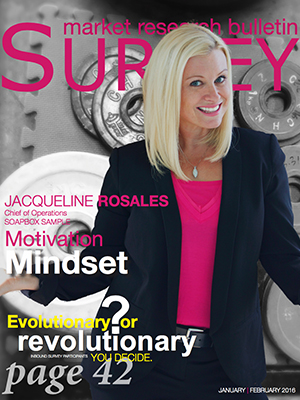By Donna Taglione, Vice President, Morpace
A recent project reminded me that we all learn from our own life experiences. Earlier this year I moderated a series of focus groups with people who had retirement investment products – Roth IRAs, 401Ks, and brokerage accounts. These groups were segmented demographically by age.
Some groups were with people in the early phases of their career trying to balance retirement savings with new house purchases and babies. Others were mid-career, worried about their own savings but mega-concerned about how to save for their children’s college education. Still others were divided into two categories – five years away from retirement and those recently retired.
The most interesting question I asked during these sessions was “what advice would you give your younger self?” Having listened to some heartfelt responses across the groups, and having read posts in the Huffington Post, on the BBC, and even E!Online, all of which asked versions of the same question, I decided to do what market researchers do best and ask a broader group – our staff – the same question.
Generationally, we have all the major demographic segments covered at Morpace: Millennials (1982-2004), Gen X (1965-1981), Boomers (1946-1964), and a few on the youngest end of the Greatest Generation (1930-1946).
What I learned was interesting…
My financial focus group participants overwhelmingly advised “don’t underestimate the power of compounding,” not surprising given the topics we covered. In other words, invest as much as you can beginning with your first job – you won’t miss money you don’t see. It was their version of the Ronco advertisements touting “set it and forget it!”
The overarching theme from my Morpace internal query was gratitude. Regardless of age, Morpace employees advised their younger selves to appreciate what they have in the moment. This appreciation might be for something as simple as free time – the ability to come and go as one pleases before the demands of a job, a partner, and/or children. It certainly includes appreciating family, especially grandparents since they love nothing more than spending time with their family.
Directly linked with gratitude was kindness to one’s self and others. Kindness includes not only being nice, but standing up for those that are picked on. Most everyone can recall a middle school or high school group that left them feeling excluded and, with the wisdom of hindsight, realized maybe the “cool clique” wasn’t so cool after all.
Gratitude and kindness were followed closely by versions of “this too will pass.” There is an old expression – the rearview mirror has 20/20 vision – meaning everything is clearer when you can look back on it, when the drama of the moment is replaced by perspective. Several mentioned learning the benefits of patience – patience to let dramatic situations play out without jumping to conclusions – of learning to pause, reflect, and wait before judging a person you barely know.
Confidence and trusting one’s own instincts are important pieces of younger self advice. We must learn to own our decisions – the good, the bad and the ugly – acknowledge what happened, and move on. Things are not always someone else’s fault.
Interestingly, there is a longing for some youthful chutzpah. Moving away from home – you can always come back. Trying a different career. Taking chances. (I loved this one: “Dye your hair the funkiest color imaginable. If you wait until you’re in your 20’s to do it, it won’t fit with your job. And if you wait until your 80’s, people will think you are senile!”)
Our collective advice to our younger selves was to be less concerned about failing and become more fearless than fearful. We’d all be wise to think like Thomas Edison: “I have not failed. I’ve just found 10,000 ways that won’t work!” – or to remember Henry Ford’s advice: “Failure is simply the opportunity [emphasis added] to begin again, this time more intelligently.” Whether financially, as in my focus groups, or in life, fearing less seems to be good advice regardless of age. Our younger selves might have benefited from that advice, but our current selves can too!














